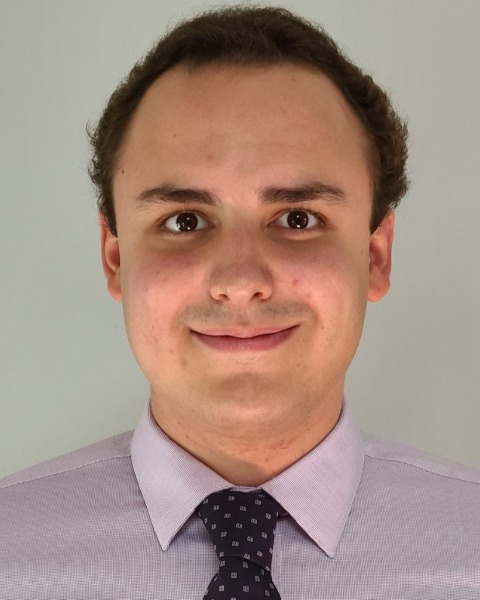Longest Successful Venovenous Extracorporeal Membrane Oxygenation Run for Hypoxemia due to COVID-19
-

Nathan Schoenrade, Medical Student
Midwestern University
Downers Grove, IllinoisDisclosure information not submitted.
-
AB
Abhinav Birda
Medical Student
Rosalind Franklin University School of Medicine, United StatesDisclosure information not submitted.
-
SC
Stephen Crabbe, MD
Resident Physician
Advocate Christ Medical Center, United StatesDisclosure information not submitted.
-
KF
Khwaila Falaneh, DO
Physician
Advocate Christ Medical Center, United StatesDisclosure information not submitted.
-
JA
Joseph Adams, DO
Resident Physician
Advocate Christ Medical Center, United StatesDisclosure information not submitted.
-
CM
Chad Morreale, DO
Resident Physician
Advocate Christ Medical Center, United StatesDisclosure information not submitted.
-
RA
Ridaa Ali, DO
Physician
Advocate Christ Medical Center, United StatesDisclosure information not submitted.
-
LE
Leon Eydelman, MD
Intensivist
Advocate Lutheran General Hospital, United StatesDisclosure information not submitted.
-
KD
Kenneth Dodd, MD
Physician
Hennepin County Medical Center
Minneapolis, MinnesotaDisclosure information not submitted.
First Author(s)
Co-Author(s)
Title: Longest Successful Venovenous Extracorporeal Membrane Oxygenation Run for Hypoxemia Due to COVID-19
Case Report Body:
Introduction: Veno-venous extracorporeal membrane oxygenation (VV ECMO) has proven effective in the setting of refractory acute respiratory distress syndrome (ARDS). The longest successful duration of VV ECMO support in a patient with coronavirus disease 2019 (COVID-19)-associated ARDS described in the literature is 51 days. We describe a successful 110-day VV ECMO run for a patient suffering from ARDS secondary to COVID-19 pneumonia.
Description: A 43-year-old male with a past medical history of lower extremity deep venous thrombosis presented to an outside hospital emergency department with fever, cough, shortness of breath and myalgias for 8 days. He was found to be SARS-CoV-2 PCR positive, and chest radiography demonstrated bilateral infiltrates. He was admitted to the hospital floor because he required supplemental oxygen by nasal cannula to maintain oxygen saturations greater than 90%. He was treated with broad-spectrum antibiotics. His respiratory status continued to worsen, and desaturations prompted intubation on hospital day (HD) #2. He was transferred to our VV ECMO receiving center for evaluation on HD #8 and was initiated on VV ECMO support the same day. The patient was extubated twice while on VV ECMO but required re-intubation both times after several days. The patient’s course was further complicated by gastrointestinal bleeding, Pseudomonal urinary tract infection, Enterococcus faecalis and Staphylococcus epidermidis bacteremia, bilateral tension pneumothoraces requiring five chest tubes in total, and a hemothorax requiring emergency thoracotomy. He was decannulated from ECMO on HD #119, after 110 days on VV ECMO support. He subsequently underwent tracheostomy and percutaneous gastrostomy tube placement. He was discharged to a long-term acute care facility on HD #142.
Discussion: VV ECMO runs longer than 21 days are historically unusual but have been more commonly seen in patients with COVID-19. Here we describe a case of a patient who survived severe COVID-19-associated ARDS after a complicated hospital course and 110 days of VV ECMO support.
